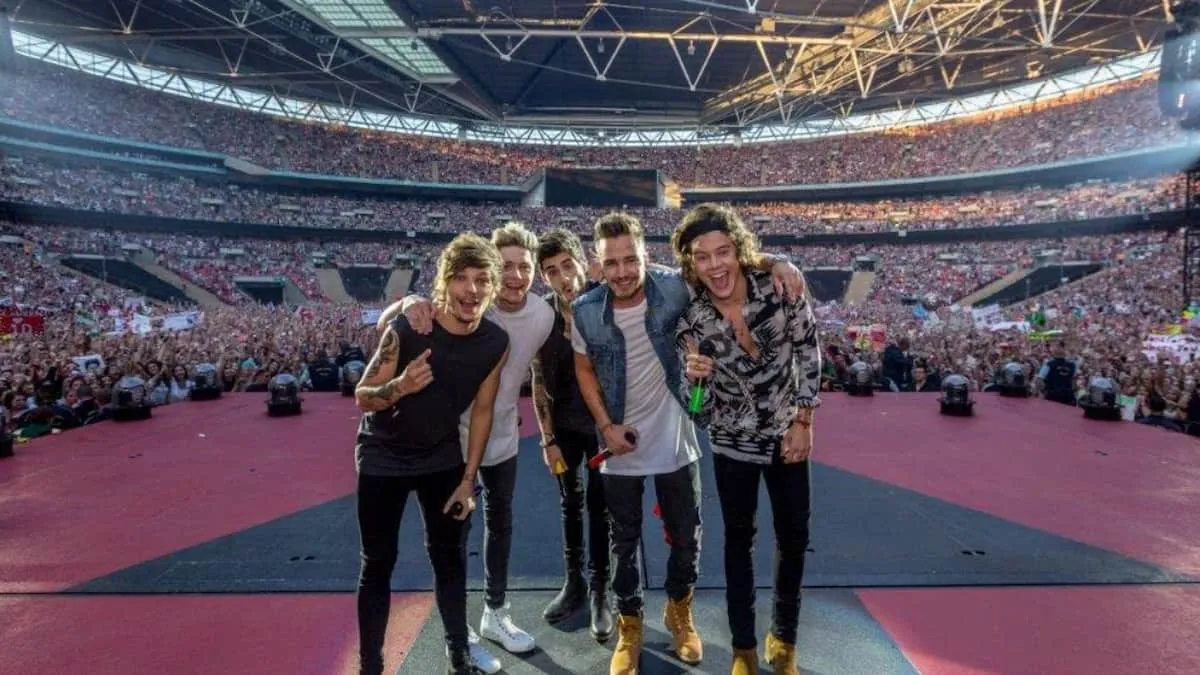
The heartbreaking and unexpected announcement of Liam Payne’s death on October 17 in Argentina has reverberated across the Internet and through fan communities. Fans, both old and new, are struggling to come to grips with the loss of the One Direction member at just 31 years old, especially in light of the recent concerning allegations from his former fiancée, Maya Henry, regarding his purported abusive behavior.
Even though I was not an avid One Direction follower, many of my friends were deeply invested in the band. Furthermore, it was nearly impossible to grow up in the 2010s without hearing countless tracks from them. Watching my friends work through their emotions has drawn my attention to a particularly intriguing and often damaging form of human connection known as parasocial relationships.

Parasocial relationships are typically characterized by the emotional bonds that develop between audiences and the celebrities they follow through various forms of media. This phenomenon is the psychological inclination to view singers, actors, influencers, and public personalities as close friends, creating a false sense of intimacy despite having never met. A significant challenge lies in that fans often know very little about the actual personas behind the public facade, as many create curated, PR-friendly images that mislead their audience.
This dynamic makes the connection between fans and celebrities feel exceptionally rich and fulfilling for fans, as viewing their cherished stars as friends grants them emotional importance in their lives. Additionally, it serves as a powerful marketing strategy for celebrities, fostering loyalty and emotional investment among their fan base. However, like any relationship, these connections can quickly turn into something detrimental when crossed into obsession.
In extreme cases, parasocial relationships can lead to fans feeling an unjustified sense of entitlement regarding the lives of their favored celebrities, encroaching upon their time and personal choices.
Few parasocial connections are as intense as those found between music artists and their fans, particularly in the case of boy bands. Several factors contribute to this phenomenon: the primary fanbase of boy bands typically comprises young girls and women, who are navigating pivotal stages of development; the marketing strategies that promote band members as ideal romantic partners; and the nostalgic sentiments that fans associate with their days of exuberantly following these bands across the globe.
The collective grief felt by many following Payne’s untimely death speaks volumes about the strength of these parasocial bonds. For numerous women in their twenties and thirties, One Direction represented their first true infatuation with a boy band, and while they may have moved past the era of plastering posters on walls and sporting band merch, the echoes of nostalgia persist.
Louis, Harry, Niall, and Zayn have released this statement for Liam, through One Direction’s Instagram.? pic.twitter.com/g2kAro7hUz
— HL Daily (@UpdateHLD) October 17, 2024
These emotional responses are manifested in various ways—from those grappling with feelings of abrupt finality to those expecting immediate reactions from One Direction members without considering the time needed for them to process this shocking news. Some fans even directed their anger towards Maya Henry, inundating her Instagram with hateful remarks blaming her for Payne’s passing.
The intricacies of parasocial relationships are complex and lack straightforward solutions; they are deeply rooted in the very essence of human connectivity, often intensified by the false intimacy social media offers. The path toward resolution lies in cultivating self-awareness and understanding the multifaceted social dynamics that drive these connections. It is possible to hold genuine fondness for a celebrity while simultaneously recognizing that they remain, in truth, a stranger.
Additionally, there’s ample space for the profound sorrow that follows Payne’s death—a tragedy involving a young life ended too soon, the grief of family and friends left in the wake of his loss, the assistance he will no longer receive, and the closure denied to the victims of his alleged abusive actions.




Leave a Reply